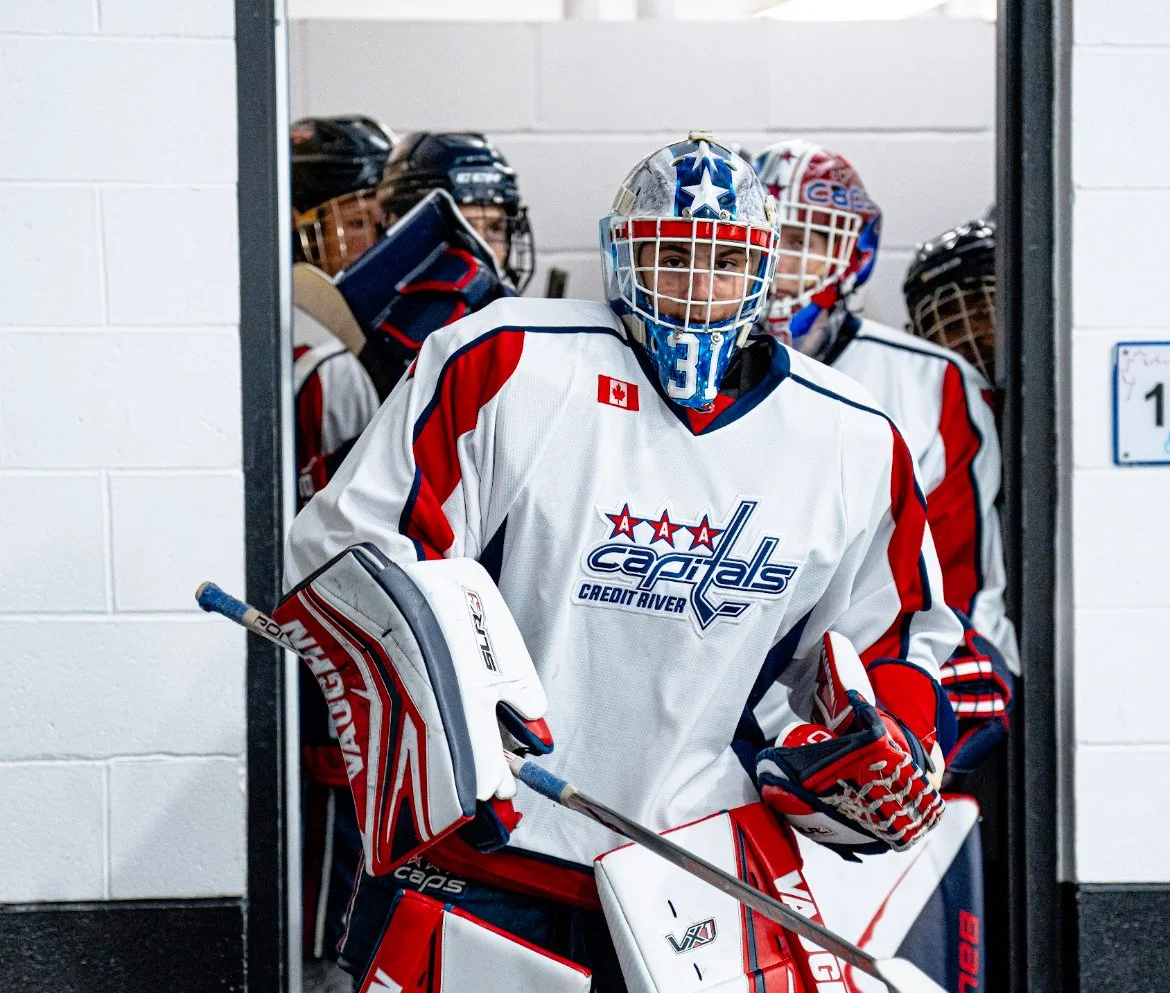The PDA Newsletter | Performance Anxiety
When The Pressure Creeps In…
What if the biggest battle your kid is facing isn’t against the competition, but against their own nerves before the puck even drops?
You’ve seen the signs…
They’re quiet in the car.
Their stomach hurts.
They avoid eating before a big game.
They triple-check their gear.
They might play with hesitation.
Internally, they might be repeating “I can’t mess this one up…”
Sometimes they lash out. Other times, they go still.
And while the game hasn’t even started, they’re already mentally and physically exhausted.
This isn’t a bad attitude or “just a phase.”
It might be performance anxiety, and it’s more common and more misunderstood than most people realize.
Let’s talk about it…
What the Science Says
Performance anxiety is a measurable stress response that surfaces when kids feel they’re being judged, like during big games or tryouts.
A 2016 study in the International Journal of Environmental Research and Public Health found more than 70% of young athletes report performance-related stress, especially when:
They feel pressure to meet expectations
They’re criticized harshly for mistakes
They tie self-worth to outcomes
When anxiety spikes, the amygdala (the brain’s threat detector) takes over while the prefrontal cortex (focus and decision-making) shuts down.
It’s not just “nerves.”
It’s biology working against performance.
A Voice From Experience: Robin Lehner
When former NHL goaltender Robin Lehner shared his struggles with anxiety, it reframed how many saw the pressures of pro sports.
This wasn't about toughness, it was about carrying the weight of expectations every time he stepped into the crease.
Lehner described panic attacks before games and the toll of trying to perform while fighting invisible battles.
His honesty proved that even the most composed players aren’t immune.
If a veteran NHL goalie can face it, it’s no surprise a young player might feel it too.
Those nerves you feel aren’t cracks in your armour…
They’re reminders that you’re human.
“Good In Practice… Not In Games”
Last season, one parent shared with us the story of their 15-year-old son, a skilled defenseman.
“At practice, he’s confident and aggressive. But in games? It’s like he’s playing not to mess up.”
Before one game, he admitted:
“If I turn it over in the first, coach won’t play me as much in the third. So I just chip it in and keep it simple every time now.”
He wasn’t avoiding creativity because he lacked skill…
He was avoiding risk because he feared the consequences.
That’s performance anxiety: not a skill gap, but a fear gap.
How Parents Accidentally Add Pressure
In trying to help, parents sometimes make anxiety worse by:
Talking constantly about stats or outcomes
Treating every game like it’s “big”
Overanalyzing plays post-game
Comparing to teammates
Showing subtle disappointment
Even well-meaning words can create an inner script:
“If I don’t play well, I’m letting everyone down.”
A Better Way In
One father said his son used to get so anxious, he’d fake being sick before games. So the dad changed his approach…
“I stopped asking about hockey before games. We talked about music or school instead.” I’d say, “Today’s just another chance to compete, nothing more.”
He didn’t lower the standards.
He lowered the stakes.
And in doing so, he helped his son remember: it’s not life-or-death. It’s just hockey.
Concluding Thoughts
So what if your kid’s biggest obstacle isn’t their skill or effort?
What if it’s the fear of failing?
Your role isn’t to push them harder.
It’s to steady them.
Not to add pressure, but to take it off.
Because when fear fades, the game feels light again.
And when the game feels light, they play free.
Actionable Advice: Supporting a Player with Performance Anxiety
Regulate First: Your calm becomes theirs.
Talk Effort, Not Outcomes: Praise work rate and habits, not stats.
Keep Rituals Light: Music, humour, and simple routines relax the body.
Anchor Their Worth: Win or lose, your pride doesn’t change.
Lower the Stakes, Not the Standards: Frame games as opportunities to compete, not pass/fail tests.
Talon Mills
Up next in the PDA Newsletter
The Jaccob Slavin Case Study
He doesn’t need the spotlight. He doesn’t need the puck on his stick to tilt the ice.
Yet Jaccob Slavin has quietly become one of the NHL’s most trusted defenders, a player who wins games by mastering the details most others overlook.





